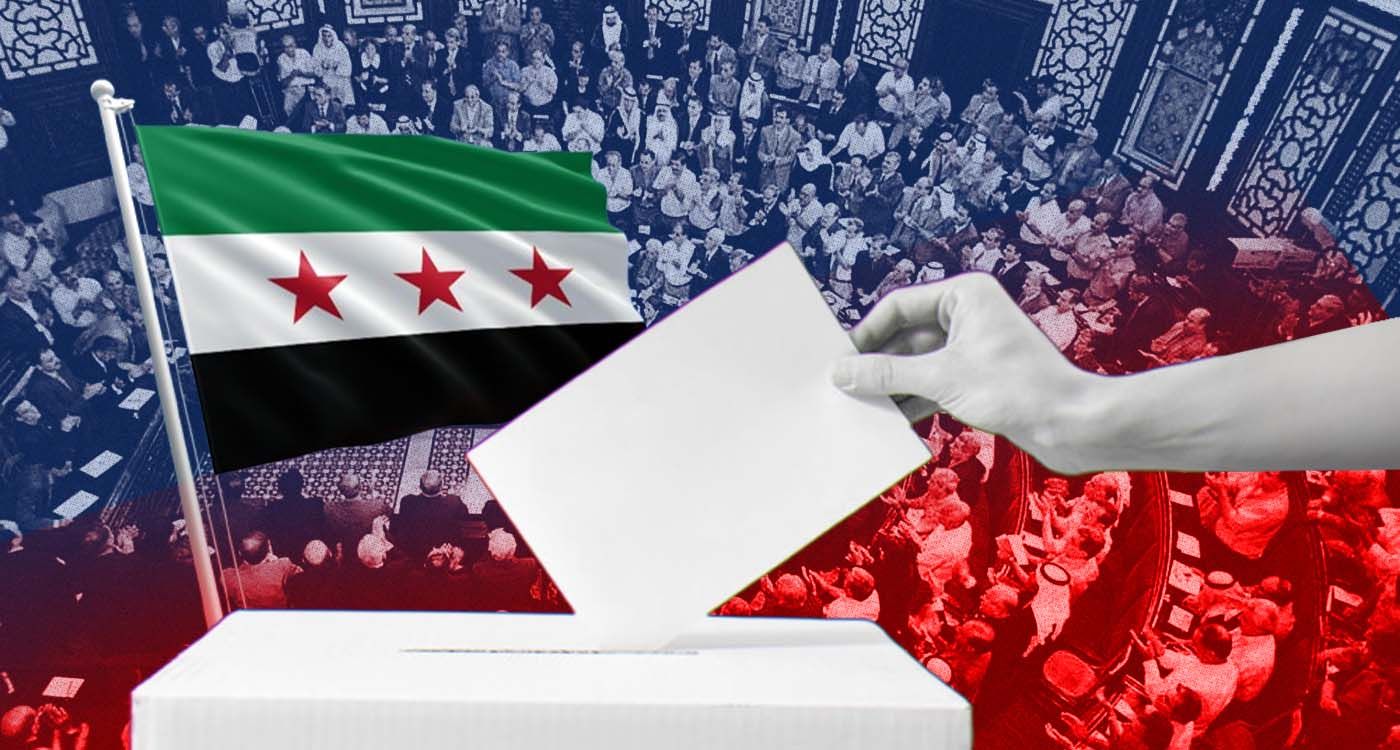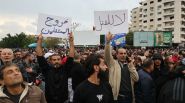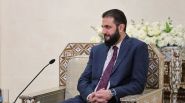- Home
- Middle East
- First Post-Assad Parliament and the Challenge of Transition

©This is Beirut
Syria’s first legislative elections since the fall of Bashar al-Assad’s regime are scheduled for September 2025. Conducted through an unprecedented indirect voting system, these elections aim to lay the groundwork for political renewal. Yet, amid promises of representation, significant uncertainties leave the outcome fragile.
According to the Syrian news agency (SANA), Syria will hold its first parliamentary elections from September 15 to 20, 2025. Marking a major institutional milestone, these elections take place during a transitional phase defined by a provisional Constitution and the appointment of Ahmad al-Sharaa as head of state earlier this year for a five-year term. This political reset places the new Parliament at the center of Syria’s future governance, though questions remain about how its members will be selected and the legitimacy of its authority.
An Election without Ballots
Despite being called “elections,” the process will not involve direct popular voting. The Electoral Commission, chaired by Mohammed Taha al-Ahmad, has adopted an indirect system due to logistical and demographic challenges: millions of Syrians are displaced internally and abroad, many lack valid identification and some regions remain outside government control.
To navigate these challenges, transitional authorities have implemented a semi-representative electoral framework. Local committees will establish electoral bodies across 60 districts aligned with Syria’s administrative divisions. These bodies will elect two-thirds of the 210 parliamentary seats – about 140 deputies allocated based on population and census – while the president will directly appoint the remaining third.
Eligible members of the electoral bodies include Syrian nationals registered in the districts or those who can prove uninterrupted residence there for at least five years before 2011, including individuals currently residing elsewhere or abroad. The total electorate across these bodies is estimated at roughly 7,000 individuals.
A Necessary Step Toward Reunification
Contacted by This is Beirut, former Lebanese MP and President of the National Council for Ending Iranian Occupation, Fares Souhaid, described the upcoming election as an “essential transitional milestone,” aligned with Sharaa’s timeline of three years to draft a new Constitution and four years to hold legislative elections.
Souhaid emphasized that this timeline reflects political necessity, “Sharaa’s mission extends beyond severing Tehran’s influence. It aims foremost to reunify a deeply fractured Syria torn apart by civil war.” In this context, he added, “this electoral process is a critical starting point.”
A Parliament with Expanded Authority
Nawar Najmeh, spokesperson for the Electoral Commission, confirmed that the People’s Council will serve as Syria’s legislative authority. Its role will extend beyond proposing and passing laws to include oversight of the government’s actions. Najmeh stressed that no executive decree can take effect without the Council’s approval.
Hassan Daghem, Head of Citizen Communications at the Electoral Commission, explained that the People’s Council holds full legislative power, and the president is required to promulgate its laws by decree. If the president refuses, they must justify their decision, and the law is returned to the Council. If the Council reaffirms the law with a two-thirds majority, it becomes effective “even against the president’s opposition.”
This assembly’s unique authority to both propose and block legislation distinguishes it from the advisory councils of previous regimes. It is a Parliament with real power, whose legitimacy will not rest on direct universal suffrage but on the strength of the electoral process and the diversity of its members.
Nevertheless, questions about representativeness remain. While legally empowered, the Parliament’s political legitimacy will depend on how it is perceived, both domestically and internationally.
When asked by This is Beirut about this, Souhaid noted that “Sharaa’s mission goes beyond institutional reform: it aims to sever the Tehran-Beirut axis and dismantle Iranian influence in the region.” Yet, the former Lebanese MP cautioned that this geopolitical ambition should not overshadow the core challenge. “Sharaa is not tasked with leading a democratic Syria,” he asserted. “His responsibility is to manage a historic transition from dictatorship to a modernized state framework. Nothing more, nothing less.”
Grey Areas and Political Challenges
Significant obstacles linger. Some regions, such as Sweida and the northeast, remain outside government control and are influenced by the Syrian Democratic Forces (SDF). Mohammad Yassine, Vice-President of the Electoral Commission for the People’s Council, stated that the Commission is working to organize elections “uniformly across all governorates.” However, holding votes in these areas is still uncertain. The Commission is engaged in ongoing dialogue with local communities but acknowledges the need to “adapt to the evolving political situation.”
Another challenge lies in election oversight. Yassine explained that appeals commissions will be established in every governorate, each composed of three judges appointed by the Ministry of Justice. These commissions will handle disputes concerning the appointment of local committee members, the selection of electoral body members and election results. For the first time in Syria, civil society observers and international organizations are expected to be permitted to monitor the process.
Souhaid observed, “Syria’s unification will not happen by magic. It requires a new Constitution that respects the country’s social diversity and a Parliament that lays the foundation.”
A Fragile Transition
Those involved in the transition stress the provisional nature of the current framework. The Parliament elected in September 2025 is intended to prepare the ground for a deeper institutional overhaul, culminating in a permanent Constitution and general elections conducted under a more traditional system. The true test will come afterward, when the Parliament is judged not by its structure but by its ability to rebuild a deeply divided nation.
In this context, Souhaid highlighted the regional implications of the transition. He believes Syria’s reconstruction is already underway, alongside a gradual normalization process with Beirut. “Lebanon has every interest in maintaining strong relations with a Syria that is once again a vast reconstruction project supported by the Arab world, Saudi Arabia, France and the international community,” he stressed. He also recalled Lebanon’s key role, “We Lebanese have been at the forefront of opposition to the Syrian regime. By weakening it in Lebanon, we helped undermine its base in Syria.”
Regarding the restoration of institutional ties between the two countries, Souhaid pointed to a longstanding tradition, “Lebanese-Syrian normalization is a Maronite specialty. It requires the President of the Lebanese Republic to take personal responsibility for it, despite any resistance.”
Read more





Comments